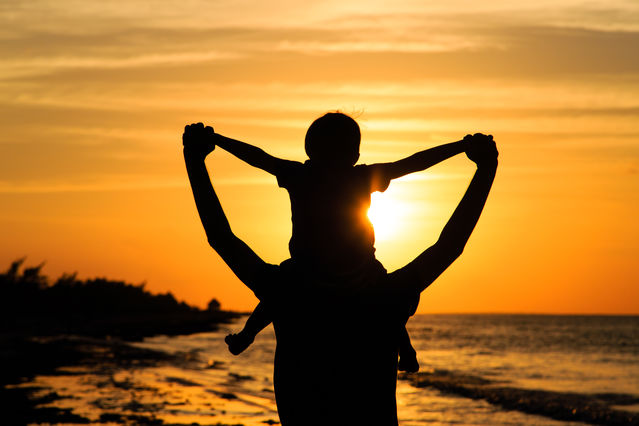Education
“I Want Them to Live When I Die.”
Learning to live in the absence of our parents. It's not easy, but necessary.
Posted July 2, 2018

It was my first semester in medical school when I received a call that my father was dying—just days before Christmas, days before his birthday. He had been sick for over a year. He had metastatic prostate cancer. It had spread to his lymph nodes and bones. He died at the age of 60. He ached in ways that were hard for me to watch. I could not save my dad. I didn’t feel ready. I wasn’t prepared. And I was terrified because I didn’t know how to live in this world without my father. It took me 10 years before I could visit his grave.
People often ask me what is the primary goal of raising children. Many books are out there. Many ideas, some are good, and some are silly. I think the answer is simple—not easy to do, but still quite simple. Raise them with a sense of community. Raise them with love. And raise them to survive in our physical absence, as competent beings, so that when we die they don’t die. We should teach our children to be self-sufficient, not just independent, but interdependent. Look, evolution did not select for us to be the strongest or the fastest animals but we were and are hyper-socialized—stronger together. That’s why early attachment matters. Learn to feel safe in the context of others and you’re more adaptive—inoculated to the stressors of life. We evolved together. And we need each other.
Community is lost. People feel disconnected from each other. Because, we are wired to connect—to be interdependent. On top of that, many of us keep our children dependent—childlike. We are overly protective. I practically bathed my first child in Purell—shielding him from everything. It was a mistake. Age appropriate challenges and adversity is necessary for development. Competency is gained by mastery not avoidance. As a psychiatrist, I see many patients with problems at work, in relationships, and finances. These issues are never the actual problem. Their main problem is their capacity to solve problems; they never learned to live in the absence of their parents. So, I support them, align with them, but I never call their boss, mother, or partner and take on their problems. Their problems are their problems to be solved. I invite them to face their problems—grow, expand, and learn. Rinse and repeat until they can survive in my absence.
Let me be clear, I’m not saying that we should throw our children, or clients, into situations that’s beyond their capacity to solve, but let’s not underestimate them too. We need to let our children and clients face age and level appropriate challenges. They need to face the adversity of a loss, a low grade, a disappointing out come, or even a breakup. We should frame losses as opportunities for learning.
All that being said, here I was as a medical student, a husband, and a man in his in his early 30’s when my father died and I was not ready for his death. I had not learned to survive in his absence. Back then, what I didn’t fully appreciate was that my father also hadn’t learned to survive in this world as a man that’s able to solve his problems of living. He avoided responsibility. Never delayed gratification. Lacked balance. Shrunk in the presence of truth. He drank too much, ate too much, and avoided the consequences of his bad choices. He had significant trauma. Struggled to regulate his mood—had tantrums. He was a boy. Today, I do not judge him for his limitations. I loved that man deeply—still do. And I would have been him if I had been given his biology and experiences. I get it. People don’t choose their biology, parents, and trauma.
Since his passing, I have discovered many more things. I have learned that he still lives within me—never truly left me. When I arm wrestle with my boys, he steps through me. When I split a meal with them—that’s him. He always shared his food with me. He loved fried clams and french fries. We’re from Maine. It's delicious--just not healthy.
Recently, I gave a talk where I shared the difficulties of being raised in a home with a father that was an alcoholic. I was asked about how I was able to become a different man. I told them that I freed my father from the role of being the only person to shape my identity. I took what I needed and released the rest. I carry with me the man that he would have been if he had been given a different life. Today, in my mind, I have the father that I needed. And I filled in the gaps that were missing with the help of mentors, writers, friends, and teachers. I took aspects from different women and men that I admired. I released the parts that I didn’t need. I am a patched together quilt. Collectively, they gave me the skills to be a father, a husband, a physician, a friend, and a teacher.
Therefore, if we are going to prepare our children or clients to be successful in this life, we must give them the tools to face the unknown. Invite coaches, friends, and mentors into their lives. Teach them to choose wisely their influences. They need to be challenged by diverse opportunities, ideas, and situations. They need the bumps and bruises of life to grow strong.
In the end, I want my boys to keep the parts of me that serve them and release the rest. And I want them to live when I die.


